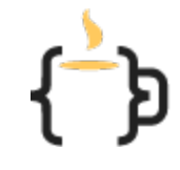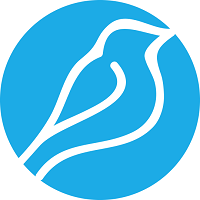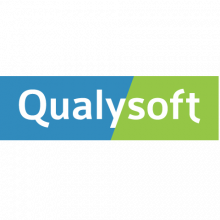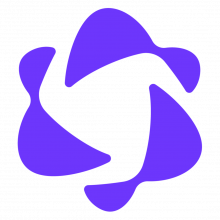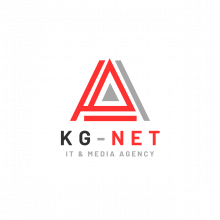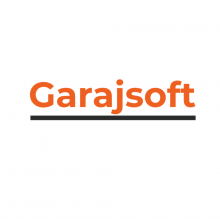
There are 16 Companies in Austria
that provide Laravel Development Services!
Austria is considered one of the fastest-growing economies of Europe and additionally has a long history and rich tradition in the culture of trading. Despite the relatively low prices, Austria is driving the information and communication technologies (ICT) sector forward and has developed into a top location.
Discover Top IT Companies in Austria specialized in Laravel and other related services. Find the best IT service providers for your projects.
Laravel is a popular open-source PHP web application framework used for building web applications and websites. It's known for its elegant and expressive syntax, as well as its rich set of tools and libraries that simplify common web development tasks. Laravel was created by Taylor Otwell and released in 2011, and it has since gained widespread adoption in the PHP development community
Handpicked companies • No obligation to hire • 100% risk-free
Featured Companies in Austria
This month, the following Laravel Development companies managed to provide an outstanding service and support. It's worth taking a look.
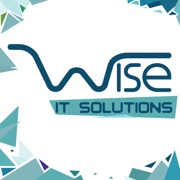
Vienna, Virgina, Austria Head office in: Ukraine
15 years translate into a proven track record of web development. We are focused on the development of eCommerce solutions. Our PWA team ready to wor...
CodesDelivery is a full service digital agency based in Austria. We are price performance winners and develop custom Websites, Shops, Platforms and W...
Webhead.at is an Austrian web agency specializing in web design, development, and online marketing, focusing on customized digital solutions.
Explore Top Laravel Development Companies in Austria
IT Staff Augmentation - Trusted by Fortune 500 Companies - EU/US based (Dublin-Sarasota-Budapest)
Webdesign, SEO & digitales Marketing aus Klagenfurt – maßgeschneiderte Lösungen für Unternehmen in ganz Europa.
Services:

Briskstar Technologies LLP Verified Company
Rastenfeld, Austria Head office in: India
Briskstar Technologies is a one-stop software company that accomplishes all sizes of custom Web and Mobile Development needs with AI-enabled tools.
Expandeum is a full-service web agency in Austria delivering high-conversion websites, SEO, branding and digital marketing for global growth success!
Services:
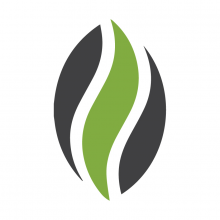
iLeaf Solutions Pvt. Ltd. Verified Company
Vienna, Virgina, Austria Head office in: India
Realizing Digital Transformation for Business Concepts
Web-Austria.at excels in web development, design, and SEO, providing tailored digital solutions to boost online presence and drive business success.
Strategy Planning, WebDesign, SEO, SMM, SERM
Full-cycle web development, iOS/Android development, complex UX/UI design services and dedicated teams to help your business scale!
E-Commerce Agency
Filter Laravel Development Companies in Austria by Cities
Find the right tech company near you or from a specific city. Some of the best companies might be located in smaller cities.
Find more Laravel Development companies around the world
TechBehemoths is the world's most advanced and user-friendly platform to match IT Companies with real clients without hustle.
ICT Industry in Austria: General Profile and Insights
Austria is considered one of the fastest-growing economies of Europe and additionally has a long history and rich tradition in the culture of trading. However, if one century ago Austria had the ”Golden Apple” of Europe - Vienna, now, in terms of the tech industry attracts considerably lower attention than its more developed and stronger sibling - Germany.
According to Payscale, the average salary of a web developer is around 3,605 EUR/month, and this makes the average hourly rate of an Austrian developer 26 EUR/hour. The numbers are really close to the EU average of 3,000 EUR/month to 5,000 EUR/month average wage in the sector, and 29 EUR/hour - hourly rate.
Despite the relatively low prices compared to what we would have expected, Austria is driving the information and communication technologies (ICT) sector forward and has developed into a top location. Many large international corporations can be found here; however, Austrian IT companies are also among the top-ranking companies on the global ICT markets.
Why Work With Austrian Companies
Due to Western European traditions and trends, Austria always implemented all EU directives and laws in the IT sector. This made it one of the most important destinations for companies from other countries, and especially the UK, after Brexit.
However, the main reason why it’s worth working with Austrian IT companies is good and precise management, along with average prices.
What to Be Aware of When Working With Austrian Companies
Based on a study performed by Red Herring, the difference between Austrian Web Agencies and other Western countries is in mentality. In Austria, everybody has another way of thinking from other Western Europeans. Thinking in the typical Western European way means going to Germany or France. This type of mindset is incompatible with large-scale globalization processes that make connections more accessible, services more affordable, and products of a higher quality. Lately, the mentality has been changing, and young entrepreneurs and agencies are evolving and adapting their way of thinking and approach, both social and business. However, Austria’s ICT branch is still in a transition period.
Are Austrian Companies Reliable?
In terms of reliability, Austrian-based agencies are among the most trustworthy in Europe and globally. Precision, commitment, and transparency are three keywords that would describe Austrian web agencies. Good management and communication are also an in-house specialty, so basically, Austria is a clear location.
How Does Austria Relate to Its Neighboring Countries in Terms of IT?
Its potential, geographically, is big: Vienna is the second-largest German-speaking city on earth, behind Berlin. The Vienna-Bratislava metropolitan region, which encompasses the Austrian and Slovak capitals, is home to over three million people. Prague, the Czech Republic’s tech-happy capital, is just a short train or flight away, as are Budapest, Zagreb, and several other central European hubs. Barely anything in Europe is over three hours away by air. All these are connecting Austria with the main European hubs and influencing the ICT development in the region.
Generally, Austria has a great IT infrastructure and development potential. Adjusting the social aspect of the industry to the more advanced countries in the region is just a matter of time. On the other hand, Austria is by far not the most experienced country in IT, but it shows positive results.
What is Laravel and what are its benefits for your projects?
Laravel is a popular open-source PHP web application framework used for building web applications and websites. It's known for its elegant and expressive syntax, as well as its rich set of tools and libraries that simplify common web development tasks. Laravel was created by Taylor Otwell and released in 2011, and it has since gained widespread adoption in the PHP development community. Here are the key aspects and features of Laravel:
-
Elegant Syntax
-
MVC Architecture
-
Artisan CLI
-
Database Abstraction
-
Blade Templating Engine
-
Middleware
-
Authentication and Authorization
-
Routing
-
Caching
-
Testing
-
Security
-
Community and Ecosystem.
-
Scalability
When choosing a PHP framework for a project, there are several alternatives to Laravel, each with its strengths and use cases. The choice depends on project requirements, familiarity with the framework, and specific preferences. Here are some notable PHP frameworks that often compete with Laravel:
-
Symfony: Symfony is a high-performance PHP framework known for its flexibility and modularity. It is often used for large, enterprise-level applications. Laravel actually uses several Symfony components under the hood. Symfony provides robust tools for building web applications, APIs, and microservices.
-
Zend Framework (Laminas): Zend Framework, now known as Laminas, is a mature framework that focuses on building scalable and enterprise-grade applications. It provides a collection of reusable components for various tasks, allowing developers to choose and integrate only what they need.
-
CodeIgniter: CodeIgniter is a lightweight and straightforward framework that emphasizes simplicity and speed of development. It's often chosen for smaller projects and rapid application development (RAD). While it has a smaller feature set compared to Laravel, it's known for its minimal learning curve.
-
CakePHP: CakePHP is a full-stack framework that focuses on convention over configuration (CoC). It comes with features like scaffolding, a built-in ORM, and a friendly community. It's known for its simplicity and convention-driven development.
Companies specialized in providing services using Laravel can significantly benefit relevant projects. Their expertise in Laravel development allows them to efficiently create customized web applications that meet specific project requirements. With a deep understanding of Laravel's capabilities, these companies can ensure the project benefits from Laravel's robust features, clean code structure, and security mechanisms.
They expedite development using Laravel's built-in tools and extensive package ecosystem, making them well-suited for both small-scale and enterprise-level applications. Security is a top priority, with specialists implementing best practices to protect against common web vulnerabilities, enhancing the project's safety, especially when dealing with sensitive data.
After the project launch, these specialized companies offer ongoing maintenance and support, addressing issues, applying updates, and ensuring the application's long-term reliability. They also excel in integration with third-party services and technologies, expanding the application's functionality and enhancing the user experience.
In addition, some companies may offer UX and design services, further improving the project's visual appeal and usability. Through rigorous testing and quality assurance, they identify and resolve potential issues before deployment, ensuring the application performs reliably across various devices and browsers.
